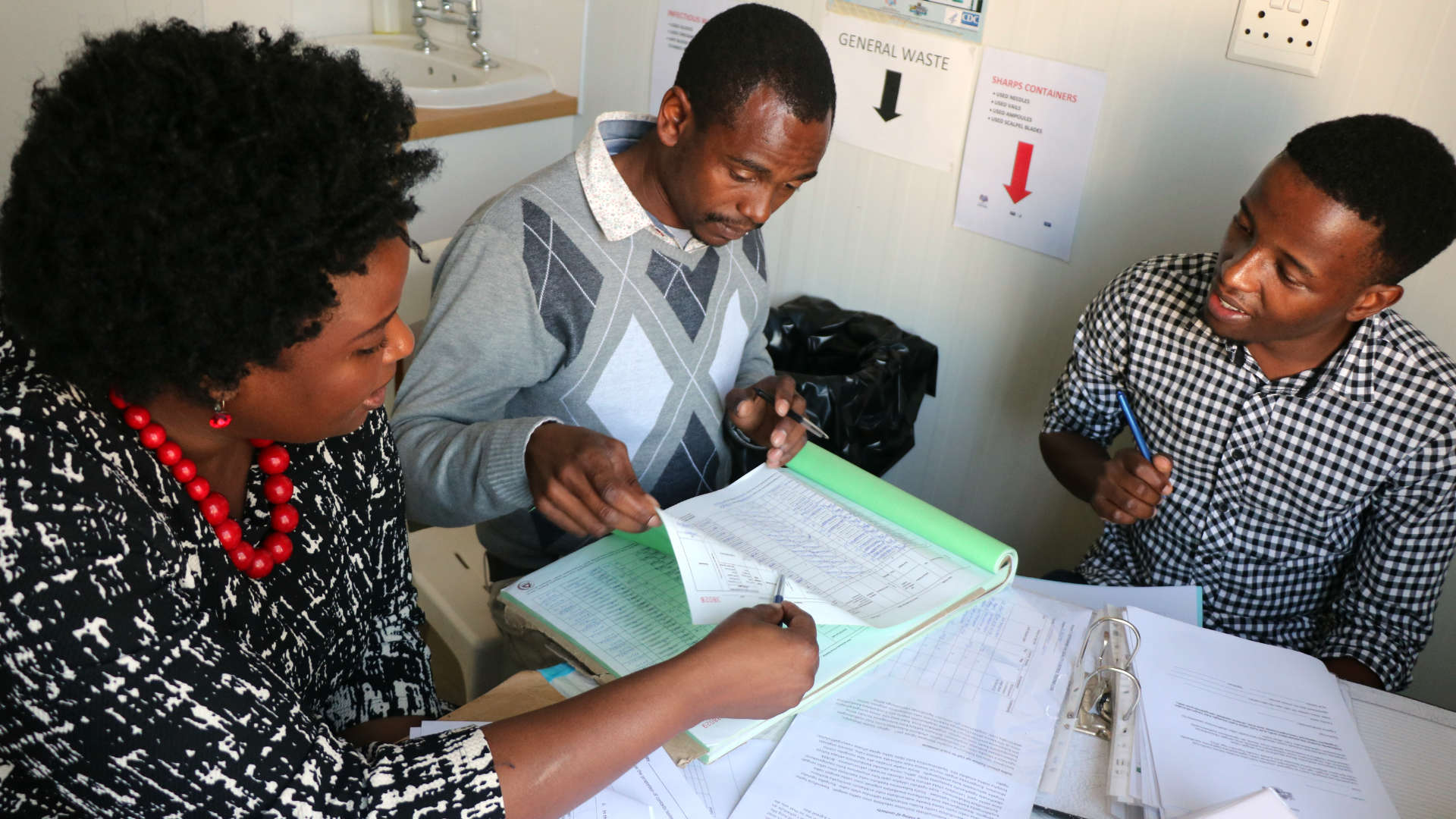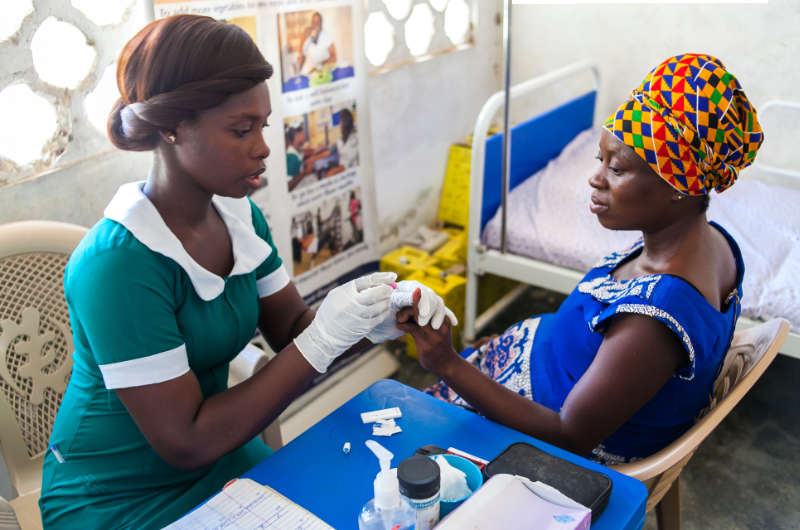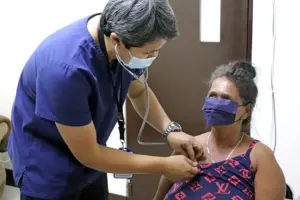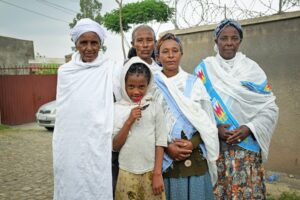
Health Workforce
Health workers in Eswatini review patient records. Photo credit: URC
Health Workforce
Health systems around the world are constrained by a pervasive shortage of health workers, often disproportionately impacting some of the hardest to reach, most insecure corners of the world where health care is most needed. This shortage contributes to preventable disease and death. The development, deployment, continuing education, retention, and management of health workers on an individual level, as well as the planning, forecasting, and skill mixing of health workers at the national level is essential to the success of global health systems, and the efficient delivery of quality care constrained by a scarcity of resources. An accessible, high-performing health workforce is the cornerstone of health service delivery and health outcomes.
Health worker performance constraints include shortages of medicine and supplies, high turnover, and limited supervisory training. Growing evidence suggests that improving productivity, engagement, and health worker performance can contribute to improved care outcomes.
URC has decades of health workforce development experience and recognizes the central value of a strong health workforce to a well-functioning health system that delivers people-centered, quality care. URC focuses on developing health workforce skills and competencies, continuously improving the quality of care, motivating health workers, and managing their performance. URC assists countries to develop, test, and scale up tools for optimizing and managing their workforce and increase evidence about the effectiveness of and return on investments in human resources for health interventions through research. Working with local partners, URC engages and empowers health workers and managers to identify problems and test their own solutions.
URC strengthens the health workforce using methods including applied research, quality improvement, and digital solutions to:
- Assess and clarify roles, expectations, and tasks within teams;
- Build health worker capacity;
- Develop and test performance incentives and introduce performance measurement;
- Strengthen feedback mechanisms among providers;
- Enhance the work environment and ensure safety of health workers; and
- Engage health workers and managers to identify problems and test solutions.
Through the USAID Applying Science to Strengthen and Improve Systems (ASSIST) Project, URC provided technical assistance to 46 countries to improve the delivery and quality of health care. ASSIST supported health workforce strengthening through interventions including job aids development, task shifting/sharing, strengthening health worker competencies through team-based performance management, coaching, and mentoring, improving the quality and coordination of pre-service training, strengthening the regulatory framework and capacity of professional councils, and extending the reach of community health workers.
Through the USAID Human Resources for Health 2030 (HRH 2030) Project, led by Chemonics, URC supports countries globally to strengthen their health workforce through tailored technical assistance to address human resource and health system gaps. HRH2030 brings a state-of-the-art approach for advancing the health workforce agenda – ensuring greater country-level impact – through provision of tailored context-specific technical assistance to address unique human resource and health system gaps. Under HRH2030, URC developed three Human Resources for Health Optimization Tools (HOT4), Excel-based tool sets that enable facility staff and managers to assess and optimize the human resources needed to reach targeted outcomes in HIV/AIDS, family planning, and primary health care service delivery.

URC led numerous studies, including a groundbreaking assessment to the social return on investments in Ethiopia’s health extension program, lessons learned from the deployment of community-based workers in Kenya and South Africa, and studies of the progress of women in the leadership of Madagascar’s and Senegal’s health and social services sector.
URC leads the Health Services Quality Accelerator Activity in Jordan to accelerate and sustain improvements in reproductive, maternal, newborn, and child health (RMNCH) outcomes through the public and private health sectors. To achieve this goal, URC works closely with the Ministry of Health to improve patient centered RMNCH core competencies and strengthen the quality of care by health providers.
Many of URC’s projects embed health workforce development into their activities as an essential component of strengthening quality health systems. In Uganda, the Regional Health Integration to Enhance Services in Northern Uganda (RHITES-N, Acholi) Activity, Regional Health Integration to Enhance Services in East Central Uganda Activity (RHITES-EC), and the Defeat TB Activity all work to improve health outcomes through strengthened service delivery, and ultimately, health workforce strengthening. URC supports Uganda’s district level health system to identify sub-district health workforce gaps and develop specific plans for improvement using quality improvement approaches. Under Defeat TB, TB care and treatment is improved through coaching and mentoring of health facility teams to reduce care system bottlenecks to improve TB screening, testing, treatment, and documentation.


